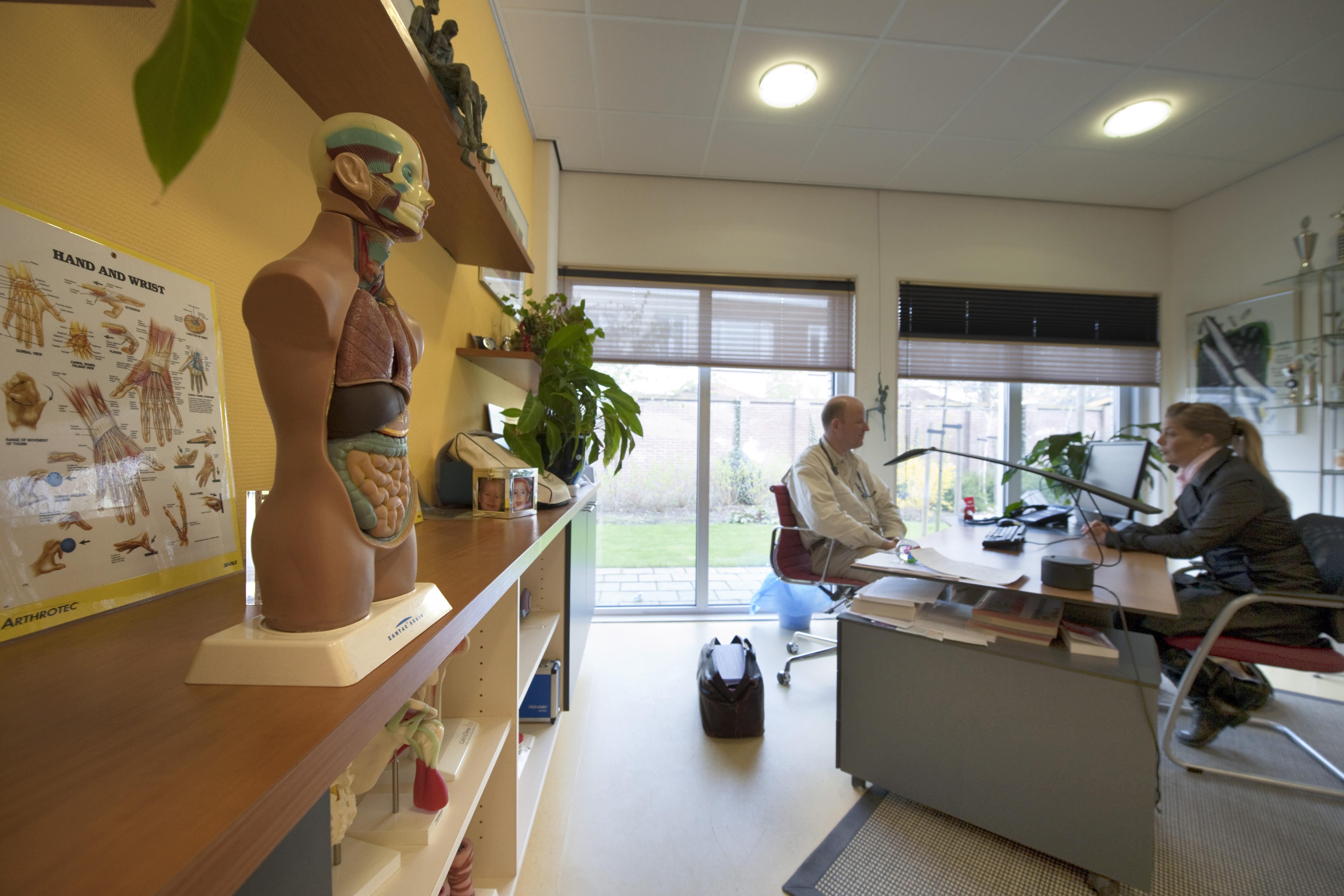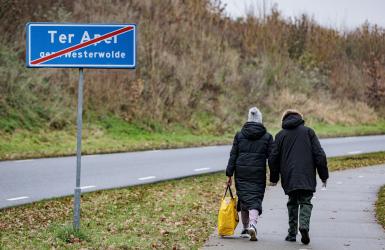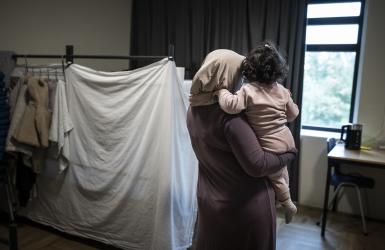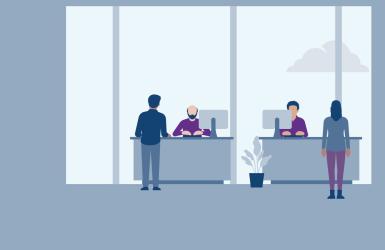TB test
Asylum seekers from countries where tuberculosis (TB) frequently occurs first have to take a TB test before we issue a residence permit or start the asylum process. This is necessary to prevent an outbreak of TB in the Netherlands. This test is not given to residents of countries in which TB rarely occurs. If an asylum seeker has TB, the asylum process will proceed after the TB treatment.
Medical examination before asylum story
We first offer asylum seekers who are going to follow the general asylum process an examination by an independent medical consultancy. Such ‘hearing this medical advice and deciding’ is for the purpose of establishing the reasons why an applicant may not be able to tell their asylum story well. For example a disability, serious illness or psychological problems. Then we can take them into account. For example with more preparation time and breaks. Or by continuing less to ask questions about a certain matter. The advice can also be that someone cannot be interviewed, but this rarely occurs. Advice can influence the decision, because during the assessment of the credibility of the asylum story we take account of the mental condition of the asylum seeker.
Asylum seekers have sometimes experienced devastating things and the asylum process is also stressful. All staff members who hold interviews always take account of how that person is doing, even if there are no medical limitations. They have undergone training in ‘Interviewing vulnerable persons’ for this purpose.
Medical examination as evidence
We assess whether an asylum seeker needs protection because that person is not safe in his/her own country. Sometimes we have a forensic medical examination done, to examine the connection between scars, physical and mental problems and the statement by the asylum seeker about what occurred. For example torture or other forms of violence. So we see if there is medical evidence that supports the story, or actually contradicts it. Two forensic institutes do these examinations: the Netherlands Forensic Institute (NFI) and the Netherlands Institute of Forensic Psychiatry and Psychology (NIFP). If the IND does not consider such an examination necessary, an asylum seeker may also have an examination done him/herself. For example by submitting a request to the Institute for Human Rights and Medical Assessment (IMMO).
Age assessment
In the asylum process we deal differently with children because they are more vulnerable. UMFNs, for example are given a guardian, different accommodation and more counselling. It is good to know who actually has a right to this and who does not. If such a young asylum seeker does not have any documents in which the age is indicated, we sometimes do a medical age assessment. But never immediately. First the Aliens Police, Identification and Human Trafficking Department (AVIM) and the IND, separately from each other, do an ‘age examination’ which is a substantiated estimate on the basis of behaviour, appearance and statements. In case of doubt we investigate further. Is it evident from the registration in the European database Eurodac that the age is known in another country? Then we often take that over. Otherwise an age assessment at the NFI is a possibility. Then radiologists assess X-rays of wrists and collarbones. In minors the joints and bones have not yet fully ‘matured’. If this examination does not clearly establish that the asylum seeker is of majority age, we continue to treat them as a minor.
Postponement of departure for medical reasons
Has an asylum seeker not obtained a residence permit, but return to the country of origin is not possible for medical reasons? Then a foreign national can apply for postponement of departure. For example if someone is not physically able to travel. But also if someone is under treatment in the Netherlands and return within three to six months would result in serious consequences for their health. This can happen if the care in that country is not available or accessible. The foreign national must ask a doctor for a statement of the medical situation. The statement may not be older than six weeks. The Medical Advisers Office (BMA) of the IND sees whether the medical care the applicant needs is available in the country of origin.
DNA test in case of family reunification
A person who has a residence permit can submit an application to allow family members staying behind to come to the Netherlands. This is called family reunification (in Dutch: nareis). To prove the identity and family relationship, we often use identity documents. If there are none, a DNA test may be needed. Family members who want to come to the Netherlands have DNA taken from cheek saliva at a Netherlands embassy. The family in the Netherlands can have DNA taken at an IND desk in The Hague. Afterwards the Netherlands Forensic Institute (NFI) examines and compares the DNA. For foster or adopted children, if there are no documents, we only hold an interview in which we discuss the family relationship. We also do this this with a partner, husband or wife. The result is important for the decision on the application. If there is no family relationship, family reunification is usually not possible.
Participate or not in a test/examination
Participation in an examination/test is always voluntary, except for a TB test. If someone does not want to participate, that can have consequences. If, for example, an asylum seeker does not want to participate in a medical age assessment, we assume that the person is of majority age. Does someone not want to hear medical advice and decision or does not want a forensic medical examination? Then the asylum seeker deprives him/herself of the opportunity to produce evidence or clarify problems that the IND can take into account.



